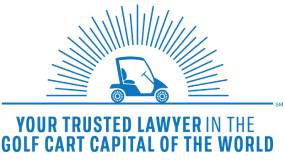Coma (Severe Traumatic Brain Injury)
If you have a family member who is in a coma as a result of an accident, or if you are attempting to get back to your former life after suffering a coma-inducing injury in a traumatic collision, asserting your legal rights may be critical to your family’s financial and emotional future. Along with huge medical bills, you could be facing other significant financial and non-financial losses. To avoid long-term financial consequences for yourself and your loved ones, it could be critical to pursue a claim for just compensation.
What is a coma?
A coma is defined as a prolonged state of unconsciousness, commonly lasting anywhere from several days to several weeks. But, some comas can last much longer, even years. While in a state of coma, patients cannot be awakened by pain or other stimuli.
Comas can result from a variety of causes. However, one of the most common causes of coma is a traumatic brain injury suffered in an accident or collision. Traumatic impacts can cause damage that disrupts the blood supply to the brain, which in turn leads to a state of prolonged unconsciousness.
What is the long-term prognosis for individuals diagnosed with comas?
The long-term prognosis for coma patients depends upon the severity of both the coma-inducing injury and any damage to the brain resulting from the disruption in blood flow. While some coma patients can fully recover, others can suffer minor or major disabilities, and in the worst cases comas can lead to death.
What types of long-term treatment do coma patients typically require?
Treatment for coma patients starts with attempting to remedy the issue that is preventing an adequate blood supply from reaching the brain. Sometimes medication can be sufficient, though surgery will often be necessary. Long-term, treatment options depend on the severity of the injury, and may include medication, additional surgeries, therapy; and rehabilitation.
When can I seek financial compensation for an accident-induced coma?
Like other types of serious injuries, you can seek compensation for an accident-induced coma whenever a third party was either fully or partially to blame for the incident. Common types of accidents in which victims and their families can seek compensation include:
- Car accidents
- Golf cart accidents
- Motorcycle accidents
- Pedestrian accidents
- Truck accidents
- Trip and fall/Slip and fall
- Accidents in nursing homes and assisted living facilities
Besides medical bills, what other types of losses can families face after traumatic accidents?
Under Florida law, accident victims are entitled to recover compensation for all of their crash-related losses. While medical bills are one component of these losses, they typically represent only a fraction of victims’ overall physical, financial and emotional harm. Other types of recoverable losses include:
- Lost income and lost future earning capacity
- Other out-of-pocket expenses (including the costs of home renovations to accommodate disabilities)
- Pain and suffering
- Emotional trauma
- Scarring and disfigurement
- Loss of companionship, consortium, support; and enjoyment of life
Contact Us Now for a Free Consultation
If you would like more information about seeking financial compensation for you or your loved one’s traumatic brain injury, we invite you to contact us for a free, no-obligation consultation. To schedule an appointment with The Villages traumatic brain injury attorney Tim Babiarz, please call (352) 205-7599 or inquire online today. If you are unable to travel to our offices in The Villages, Mr. Babiarz will gladly come to you.


